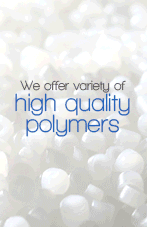Germany-based chemical company BASF has decided to exit the current R&D collaboration with Denmark-headquartered Novozymes and US firm Cargill to develop a bio-based process for producing 3-hydroxypropionic (3-HP) and acrylic acid from renewable raw materials. BASF joined the collaboration with Novozymes and Cargill in 2012 and is now leaving the partnership. Novozymes and Cargill have collaborated on the project since 2008 and will continue their work to commercialise bio-based 3-HP and derivatives, the companies say. The two companies have initiated efforts to find a new commercialisation partner.
“We are continuing our work with Novozymes to commercialise 3-HP to bio-based chemicals, including acrylic acid to bring our customers more sustainable alternatives to fossil-based chemicals,” says Cargill’s Vice President of Research and Development, Jack Staloch.
“This is pioneering biochemical research, and the technology development and achievements so far have been extraordinary,” says Kristian Bjørneboe, Vice President for Business Creation and Acquisition at Novozymes.
The R&D cooperation on bio-based acrylic acid has achieved the technical and business targets. In 2013, the project accomplished the production of 3-HP in pilot scale, and in September 2014 announced the successful conversion of 3-HP to glacial acrylic acid and superabsorbent polymers.
Acrylic acid is a high-volume chemical that feeds into a broad range of products. One of the main applications is in the manufacture of superabsorbent polymers that can soak up large amounts of liquid and are used mainly in baby diapers and other hygiene products. Acrylic acid is also used in adhesive raw materials and coatings. Presently, acrylic acid is produced by the oxidation of propylene derived from the refining of crude oil.
BASF is the world’s largest producer of oil-based acrylic acid and acrylic esters. Last year, its Chinese joint venture with Sinopec, expanded its acrylic acid value chain with additional acrylic acid and butyl acrylate plants. It inaugurated two new plants for acrylic acid and superabsorbent polymers (60,000 tonnes/year) in Shanghai last year.
(PRA)




























